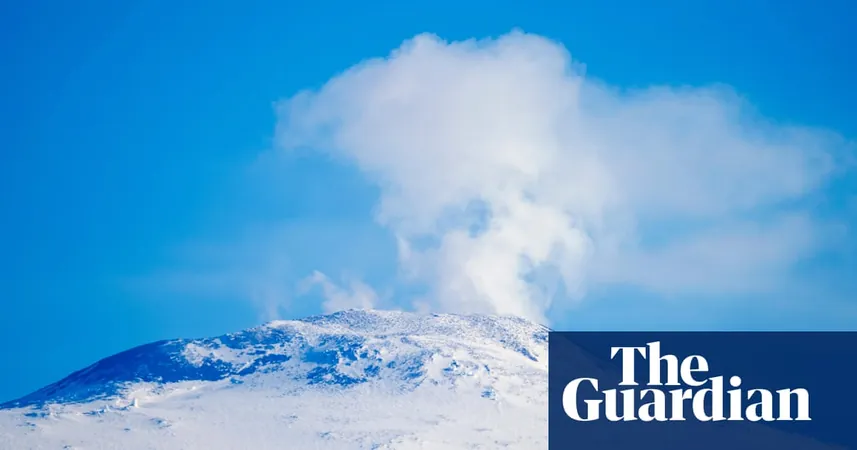
Melting Ice Caps: Are Volcanic Eruptions Next?
2025-07-07
Author: Liam
A shocking new study reveals that the melting of glaciers and ice caps due to climate change could trigger a series of explosive volcanic eruptions, raising alarm bells among scientists.
As the planet heats up from fossil fuel emissions, the weight of ice on underground magma chambers is lifted, making eruptions more probable. While this phenomenon has been documented in Iceland, researchers are emphasizing that similar dangers lurk beneath the ice of West Antarctica, where over 100 hidden volcanoes lie dormant.
A Volcanic Time Bomb in Antarctica?
As ice continues to vanish in the coming decades, scientists warn that the volcanic risks in West Antarctica could escalate significantly. These eruptions have a dual effect: while they can temporarily cool the Earth by releasing reflective particles into the atmosphere, sustained volcanic activity could also spew massive amounts of greenhouse gases like carbon dioxide and methane, exacerbating global warming.
Pablo Moreno-Yaeger, the study’s lead researcher from the University of Wisconsin-Madison, stated, "As glaciers retreat due to climate change, our findings suggest these volcanoes will erupt not just more frequently, but also with greater explosivity."
Insights from the Andes
Presented at the Goldschmidt geochemistry conference in Prague, the study involved rigorous fieldwork in the Andes, surrounded by both active and dormant volcanoes. Using radioisotope dating, scientists explored the Mocho-Choshuenco volcano to determine the ages of rocks formed during various periods of the last ice age.
Their findings indicated that the thick Patagonian ice sheet, which once loomed 1,500 meters high, greatly suppressed volcanic activity between 26,000 and 18,000 years ago. But with the melting of ice 13,000 years ago, the magma chamber was relieved of pressure, setting the stage for explosive eruptions.
A Global Concern
Moreno-Yaeger noted that the increased eruptive activity is not exclusive to Iceland; it could also spell trouble for Antarctica and regions like North America, New Zealand, and Russia. Previous studies showed a global uptick in volcanic activity of two to six times following the last ice age, but the Chilean study uniquely illuminates the mechanisms behind this resurgence.
As we stand at a critical juncture in addressing climate change, understanding these volcanic risks becomes crucial. Could we be on the brink of a geological upheaval as our glaciers continue to melt?









 Brasil (PT)
Brasil (PT)
 Canada (EN)
Canada (EN)
 Chile (ES)
Chile (ES)
 Česko (CS)
Česko (CS)
 대한민국 (KO)
대한민국 (KO)
 España (ES)
España (ES)
 France (FR)
France (FR)
 Hong Kong (EN)
Hong Kong (EN)
 Italia (IT)
Italia (IT)
 日本 (JA)
日本 (JA)
 Magyarország (HU)
Magyarország (HU)
 Norge (NO)
Norge (NO)
 Polska (PL)
Polska (PL)
 Schweiz (DE)
Schweiz (DE)
 Singapore (EN)
Singapore (EN)
 Sverige (SV)
Sverige (SV)
 Suomi (FI)
Suomi (FI)
 Türkiye (TR)
Türkiye (TR)
 الإمارات العربية المتحدة (AR)
الإمارات العربية المتحدة (AR)